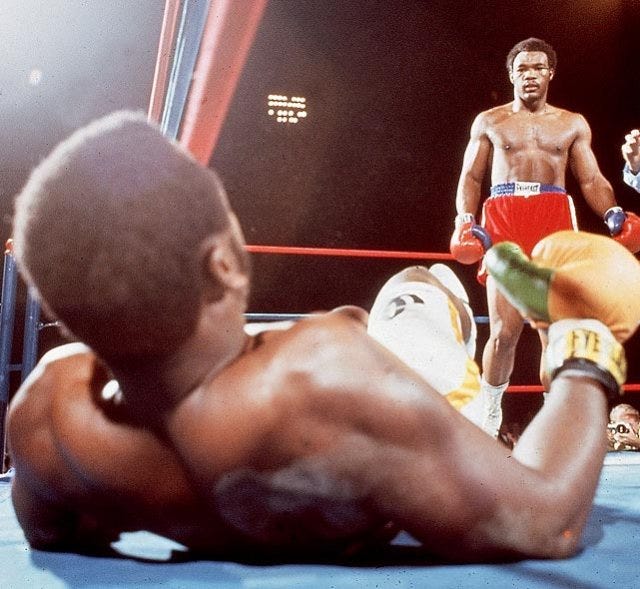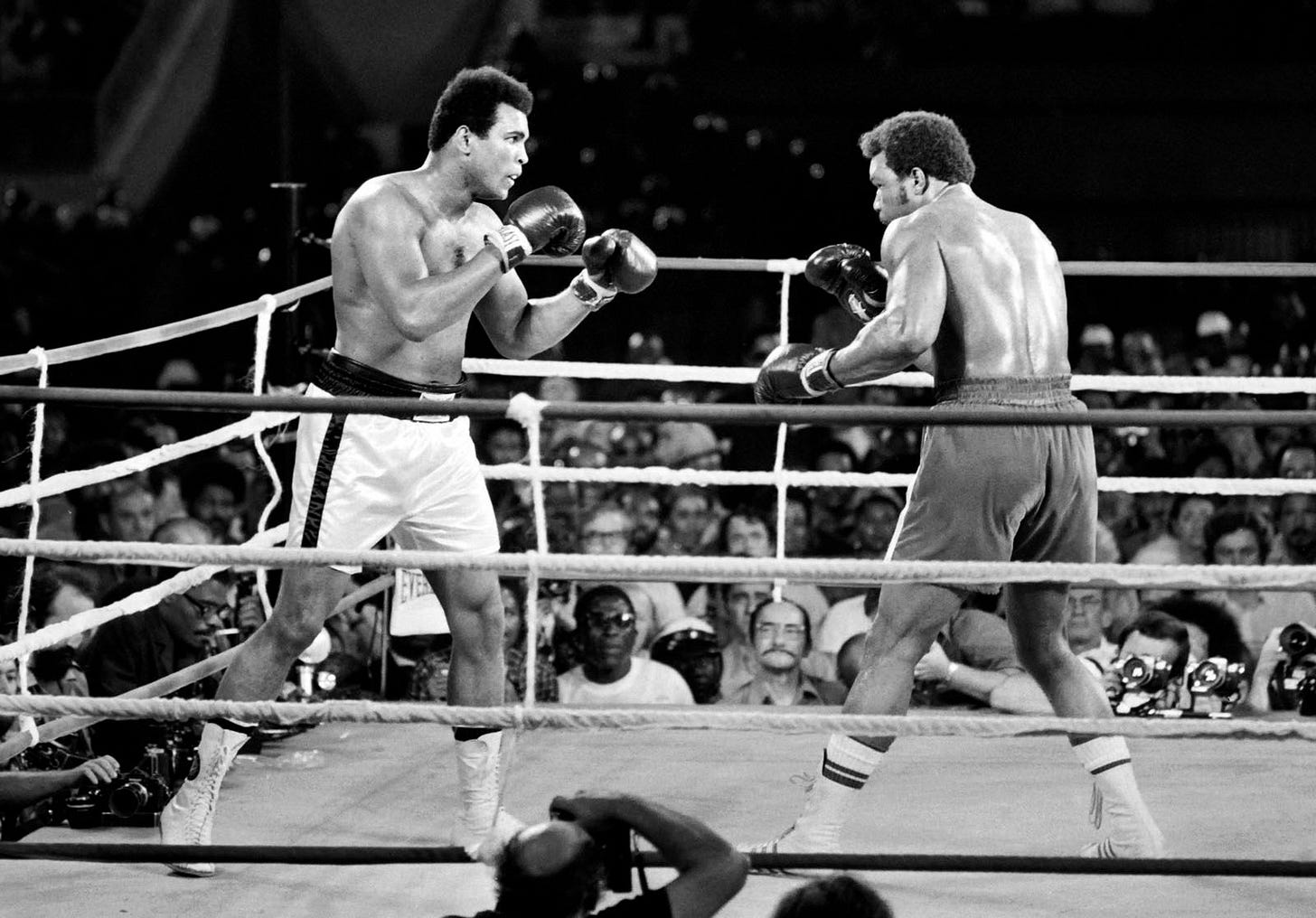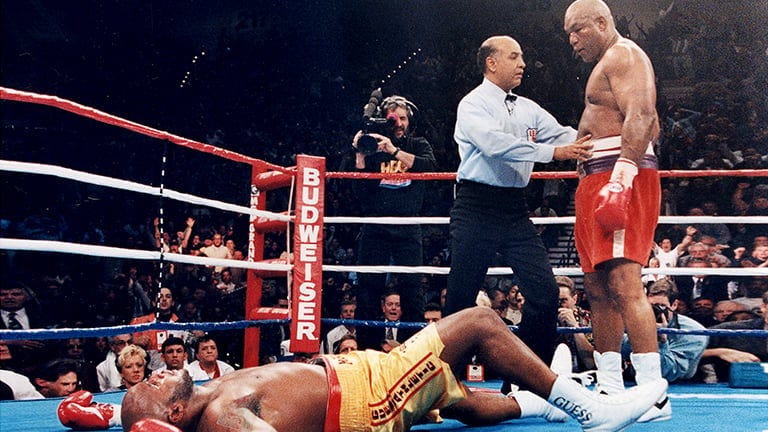Breaking News: George Foreman: A Legacy of Strength, Faith, and Resilience (1949 - 2025)
On March 21, 2025, the world lost a true legend—George Foreman. A two-time world heavyweight champion, Olympic gold medalist, entrepreneur, preacher, and devoted family man, Foreman embodied resilience and transformation. His impact transcended sports, leaving an indelible mark in business, faith, and family life.
The Rise of a Champion
Born on January 10, 1949, in Marshall, Texas, and raised in Houston, Foreman’s early years were marked by hardship. A troubled youth, he found direction through the Job Corps, where he was introduced to boxing. Under the guidance of coach Doc Broadus, he honed his skills and quickly rose through the ranks.
His breakthrough came in 1968 when he won an Olympic gold medal in Mexico City. The moment was cemented in history when he waved a small American flag in the ring, a gesture of pride and triumph.
Foreman later reflected, “I may have been born poor, but I’ll never die poor.” His Olympic victory set the stage for one of the most dominant careers in boxing history.
Dominance in the Ring
Foreman turned professional in 1969 and bulldozed through his opponents with unmatched power. In 1973, he claimed the world heavyweight title by defeating Joe Frazier in Kingston, Jamaica. The fight was a stunning display of raw strength—Foreman knocked Frazier down six times in two rounds before the referee stopped the bout. It was during this fight that Howard Cosell famously uttered, “Down goes Frazier! Down goes Frazier! Down goes Frazier!”
Picture: George Foreman, in 1973, claimed the world heavyweight title by defeating Joe Frazier in Kingston, Jamaica.
Despite his dominance, Foreman’s most memorable fight was the 1974 “Rumble in the Jungle” against Muhammad Ali in Zaire (now the Democratic Republic of Congo). He entered as the undefeated champion and overwhelming favorite, but Ali employed the “rope-a-dope” strategy, absorbing Foreman’s powerful punches before launching a counterattack in the eighth round that secured his victory.
That defeat humbled Foreman, and he later admitted, “It’s not about winning or losing; it’s about getting up when you’re down.”
The "Rumble in the Jungle" remains one of the most iconic fights in boxing history, not only for the dramatic upset but also for its cultural and political significance. In 2024, the world celebrated the 50th anniversary of the historic bout, with Foreman reflecting on its lessons and impact. He often spoke about how the fight taught him humility and resilience, shaping the man he would become in his later years. The anniversary was marked by tributes to both Ali and Foreman, honoring their legacy in the sport and beyond.
Picture: Rumble in the Jungle, heavyweight boxing match held on October 30, 1974, between then heavyweight champion George Foreman and Muhammad Ali in Kinshasa, Zaire.
After a shocking loss to Jimmy Young in 1977, Foreman experienced a life-changing spiritual awakening in the locker room. He claimed to have had a near-death experience and, in that moment, dedicated his life to God. At the age of 28, he retired from boxing to become a preacher.
A Historic Comeback
A decade after leaving the sport, Foreman made a stunning return to boxing in 1987. Critics doubted a 38-year-old could compete in a younger man’s sport, but Foreman defied expectations. His comeback culminated in 1994 when, at 45 years old, he knocked out Michael Moorer to reclaim the heavyweight championship—becoming the oldest fighter in history to win the title.
Picture: George Foreman defeat Michael Moorer in 1994.
Clad in red trunks, the same pair he wore when he lost to Ali 20 years earlier, Foreman raised his hands in victory.
When asked how he did it, he responded with one of his most iconic quotes: “It’s not about age; it’s about believing in yourself.”
The Business Mogul
Outside the ring, Foreman became a household name not for boxing, but for his business ventures. His most famous success came with the George Foreman Grill, a lean, mean, fat-reducing machine that revolutionized healthy cooking. Initially skeptical about endorsing the product, he later credited it with changing his life. Over 100 million grills were sold worldwide, making Foreman one of the most successful athlete entrepreneurs in history.
He often said, “The question isn’t at what age I want to retire, it’s at what income.” His success in business proved that his talents extended far beyond boxing.
The Preacher and Mentor
After his spiritual awakening, Foreman became an ordained minister and dedicated himself to helping troubled youth. He opened a community center in Houston, providing guidance to those in need.
His philosophy was simple yet profound: “Don’t let any opportunity lead you away from serving God. That’s a price that’s too high to pay.”
Despite his wealth and fame, he remained humble and committed to his faith. He often preached about second chances, reinforcing the idea that it’s never too late to turn your life around.
The Devoted Family Man
Foreman’s proudest role was that of a father. He had 12 children, including five sons—all named George.
When asked why, he famously quipped, “If one of them makes a mistake, I want to make sure they all take the blame.” His love for his family was evident, and he often emphasized the importance of unity and support.
Even in his later years, he continued to inspire with his wisdom and humor, proving that true greatness is measured not just by achievements, but by the lives one touches.
A Passionate Humanitarian
Beyond his boxing accolades and business ventures, Foreman was a dedicated humanitarian. He tirelessly worked to uplift underprivileged communities, often donating money and resources to educational programs, youth mentorship initiatives, and disaster relief efforts. His Houston-based community center provided a safe space for countless young people to develop discipline and confidence, much like he did when he first discovered boxing.
He believed that success meant giving back, often saying, “True wealth is not in what you keep, but in what you give away.”
His philanthropy extended internationally, supporting causes that addressed poverty, health, and education. Whether through his foundation or personal contributions, Foreman remained committed to making the world a better place.
A Lasting Legacy
George Foreman’s journey—from a troubled youth to Olympic champion, from world heavyweight king to preacher, from entrepreneur to devoted family man—exemplifies resilience and reinvention. His life reminds us that setbacks are not the end but opportunities for comebacks.
As we remember this legend, his words continue to resonate: “It’s not about how hard you hit; it’s about how hard you can get hit and keep moving forward.”
Rest in peace, Big George. Your legacy will never fade.




